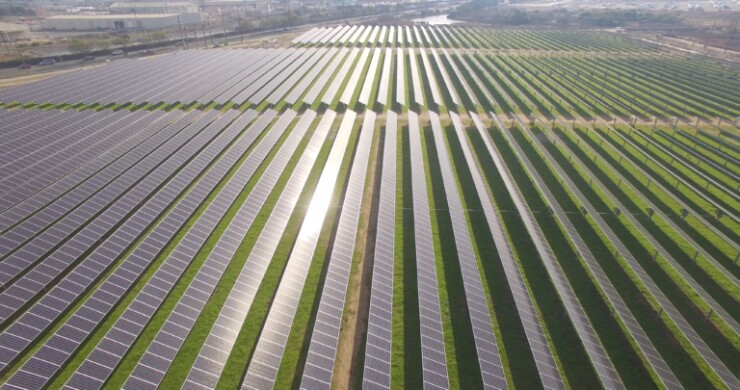Hawaii lawmakers are considering a bill that would authorize $100 million in special purpose revenue bonds to build and operate solar-powered saltwater desalination plants on Hawaii Island.
The bonds would help northern California-based Trevi Systems, Inc., or its related entity, Kona Coast Water LLC, to finance plants to transform saltwater into fresh water using solar energy and supply it to customers on Hawaii Island and possibly other islands, Thomas Birdsall, manager of Kona Coast Water and a Trevi Systems board member, said in committee testimony.

The state Senate Committee on Ways and Means approved Senate Bill 1440 Wednesday on an 11-0 vote. It moves to the Senate for a full floor vote. If approved there, it would still have to pass the state’s House of Representatives.
The first plant would produce up to 6,000 cubic meters of water per day, enough to supply more than 9,600 people with fresh water. It would also produce power that could be sold to repay the bonds, Birdsall said.
The plant would be located on land leased at the Natural Energy Laboratory of Hawaii Authority site, an 870-acre research facility called Hawaii Ocean Science and Technology Park, adjacent to the Kona airport. Kona Coast Water has identified potential customers for the water both within and near the NELHA site, Birdsall said.
The Authority received a $2 million grant in June from the U.S. Department of Energy’s Solar Energy Technologies Office for projects using solar-thermal desalination that will also help fund the project, which was one of 14 nationally to receive funding.
Electricity accounts for about half of the operating costs of desalination plants and requires them to be connected to the power grid, according to the State of Hawaii. The state estimates it will need an additional fresh water capacity of 100 million gallons per day by 2030.
The plant involves new forward osmosis technology that Birdsall says uses a fraction of the energy of traditional reverse osmosis.
If the legislation is approved, the proposed bonds and conduit loan would require further review of the financing proposal to ensure it complies with all federal, state and credit underwriting requirements, according to written testimony from Roderick Becker, director of the Hawaii Department of Budget and Finance.





